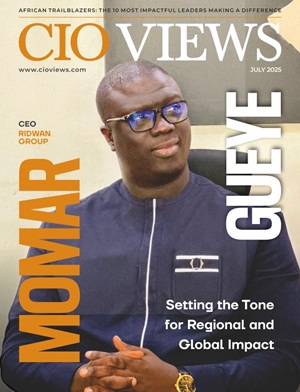
One of the issues facing entrepreneurs, especially women, is the idea of organizing everything. All business owners have to juggle personal life and work. Many women face the second shift (of housework and looking after children) after they get home from work.
Being able to stay organized is imperative these days. Back before everyone was expected to hustle 37 jobs at a time, kids didn’t have to fill up every hour of the day with activities before and after school.
No one worried about schlepping one kid to baseball, another to ballet, while remembering the one who was at chess club. And parents stopped chauffeuring once their kids were old enough to get driver’s licenses.
Apparently, those days are over. Successful juggling of work and life requires some serious organizational skills.
“The obvious rule of efficiency is you don’t want to spend more time organizing than it’s worth.” — Daniel Levitin
Just like personal finance, being organized is largely a matter of taste. There are plenty of ways to do it! Some things work for some people, and not for others.
However, with a few organizational issues, research tells us we’re better off doing certain things in a certain way. And you probably won’t like what the research has to say, but I’ll tell you anyway.
- The whole calendar thing
Honestly, my preference would be to have one calendar only. But it doesn’t work that way for me. I need a planner (not just a calendar), and the ones I find helpful are often too big to put in my purse.
Those of you working towards digital minimalism, and no longer using the calendar app on your phone, will also need some form of paper calendar.
I have both. At least when I’m setting appointments in my phone, and I can copy them into the planner later. I don’t like that extra step. I could work around just having a paper planner. But I know plenty of people who like to schedule online, so that wouldn’t work.
It may take a while to find out what the best planner/calendar/app is. If you don’t already know what you like, try different things that seem like they could work with your lifestyle. When I worked in an office, I had a weekly planner. That’s how I prefer to set things up: I want to see the week ahead, as well as the individual days.
I did a BuJo for a couple months. I’m currently using another planner, which is working so far. I’ve been using it for about a week now.
I kind of hate buying a preorganized planner, but this one is set up pretty closely to the way I work. Month, then week, then day. I prefer combing my planner with my calendar. Otherwise I end up with separate notebooks and I can’t keep them straight. Easier for me to plan and have it in the same place.
As always, YMMV.
- Business finances
With this one, there is a right and a wrong way. The right way allows you to automate almost everything. Any other method of compiling your finances that involves too much manual entry is wrong.
You’ll need software. Better even than a spreadsheet, if you can believe it! I use Quickbooks, but you can use anything you want. I personally find Quickbooks obvious and intuitive to use. However, most of the popular accounting software should have the key features.
You have a business credit card(s) and a business checking account. Maybe a savings account as well. By the way, this is the correct method of setting up your business finances.
Your life will be much easier when you don’t commingle (combine) personal and business finances. And you’ll have documentation in case the IRS comes a-calling.
Link your business cards and accounts to your bookkeeping software. Then, let it do its thing. As long as your purchases are on your credit card or the debit card linked to your checking, it will show up in your software.
You may or may not need to categorize purchases on an ongoing basis. Set up rules for what’s what, and that’s pretty much it. Periodically, you need to run through it and ensure everything’s categorized correctly.
Make sure your software keeps track of how much you’ll owe in estimated quarterly tax. There’s not a lot of latitude you can have on this one! The IRS will be unhappy if you don’t pay your quarterly taxes like you’re supposed to. Avoid fines and liens by staying current.
- Organizing notes
This is highly dependent on how you work. However, there’s also some research into what’s most effective.
When I’m at a conference, everyone whips out their tablets or laptops and starts typing notes (unless they’re playing games on their phones). Which actually … is a waste of time.
Research shows you have better recall when you write notes in longhand as opposed to typing them.
Very few people do this anymore.
Once you’ve taken your notes, they need to go somewhere. I use pads of paper for notes, unless I’m at a conference. There I usually write on the presentation printout. I’ll put all my conference info together in one notebook, since I can find it pretty easily.
You might want to use an app to work with your reading, or notes, or sharing. A friend of mine uses Evernote. When I want to share things, I often use a Google doc. They mimic popular office apps pretty closely.
You’ll probably have to try different things, until you find what works. Don’t spend a lot of money on an app, unless you already know you can and will use it. Try the free version first to see if it works for you.
- Organizing workdays
For those of us with multiple income streams, it’s very important to manage your days as well.
You know what helps? Put your phone down.
But wait… there’s more!
Some people like to record the minutiae of their day in 15 minute increments. I would rather go get a root canal with no anesthesia. I work in terms of hours. You do you.
Do you work on different projects? Divvy up the week according to how much you want (or need) to work on your various tasks. I was working on my divorce finance book one day a week, but I couldn’t sit with it all day. Now I work on my cases that day too.
Three days I’ve set aside specifically for Desert Diva Writing, and my Teachable personal finance course takes one day. Which may soon be less or more, depending on my sales figures while I’ve been running my promotion of the first module free.
Importantly, I block time for deep work.
Put your phone back down. You cannot do deep work, or get into flow, when you’re constantly interrupted by notifications. Or just your own Pavlovian response to flashing screens.
Are there genuinely important calls you might need to take — your child’s school, or your elderly parent’s care facility? Program your phone with a specific ringtone so you know when they’re calling. Ignore or mute all others when you’re working.
As an entrepreneur, you’ll also probably need to make hard boundaries about when you work. Because you can always do something more! I guarantee you there is something else for you to do every hour of the day. And I know this because I’m currently struggling with it myself.
Maybe your hard stop is at 5 pm, allowing you to spend time with your partner and your family. Or your pets. Squeeze exercise in there somehow, even if it’s just a head-clearing walk. Put it in your calendar, at least at first, until you get used to it.
The past couple of weeks I’ve either had a tight time schedule, or something came up and I couldn’t log off when I wanted to. I try to take a couple days off each week. But I’ve been bad about blocking time on my calendar, so it didn’t happen.
Work in progress!
Summary
There are specific organizational needs when you’re a business owner, especially if you’re a woman. When it comes to finances you need to follow the rules, but with other topics, you may need to find out what works for you.
As with everything, you don’t get anywhere until you take the first step. Don’t know which bookkeeping software to use? Do a little — a LITTLE — online searching. If nothing strikes your fancy or meets your exact needs, pick one and start.
Feel like you need a paper planner? Lots of places to find them. Pick one up, flip through it, and if it’s not objectionable, just start with it. If one thing doesn’t work, try another. It’s OK.
It doesn’t make you a failure if you just can’t stand the things that everyone you know uses and you need to do something else! There’s no right or wrong when it comes to planners and calendars. Just go ahead and do the something else.
There’s always work upfront to get things set up. But once they’re set up, being organized should actually be LESS work for you. And if it’s more (after you’re used to the way it works), then the system is not right for you. Try something else.




















